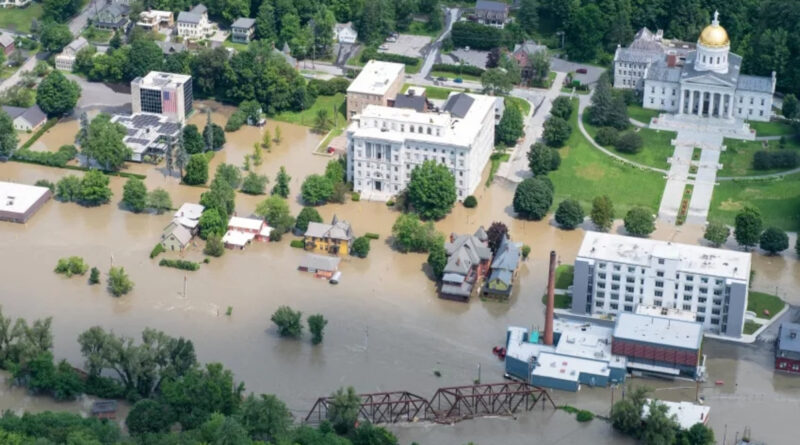
The U.S. government has filed a lawsuit against the state of Vermont, aiming to invalidate its recently enacted Climate Superfund law. This legislation requires fossil fuel companies to contribute to the cleanup of environmental damage caused by climate change, a move that the administration argues conflicts with federal authority. The lawsuit was officially lodged in federal district court in Vermont on September 15, 2023.
Vermont’s Climate Superfund Act, passed in May 2024, allows the state to recover financial damages from fossil fuel companies for the impacts of climate change. According to Vermont Treasurer Mike Pieciak, these funds are intended to support climate adaptation projects, particularly in light of recent widespread flooding that has disproportionately affected low-income communities. Pieciak stated, “To support the health, safety, and prosperity of our communities, we must ensure Vermont is equipped financially to address the impacts of climate change.”
The Secretary of Natural Resources, Julie Moore, echoed these sentiments, emphasizing the state’s commitment to learning from experts to hold fossil fuel companies accountable. She noted, “Vermont has seen firsthand the significant impacts that climate change is having on our environment and our economy.”
In stark contrast, the federal government’s complaint describes Vermont’s law as an attempt to undermine federal supremacy and claims it “clashes with U.S. foreign policy.” The administration’s legal brief characterized the law as a “lawless experiment” and requested a summary judgment to expedite the case, reflecting its belief that the legal issues are clear-cut.
This lawsuit follows earlier legal actions by the Justice Department and the Environmental Protection Agency against both Vermont and New York regarding similar climate Superfund laws. These laws are modeled on the “polluter pays” principle, which is a cornerstone of the federal Superfund program.
Advocates for Vermont’s Climate Superfund law, such as Paul Burns, executive director of the Vermont Public Interest Research Group, argue that the legislation is essential for holding fossil fuel companies accountable for the damages they have caused. Burns stated, “This law is about holding Big Oil accountable for a portion of the damage it has already brought to Vermont’s farms, businesses, homeowners, and communities.”
Supporters of the law contend that Vermont is exercising its rights to protect residents from the consequences of climate change. Grace Oedel, executive director of the Northeast Organic Farming Association of Vermont, emphasized the importance of the law for the state’s agricultural community, stating, “We know what’s behind the worsening extreme weather affecting our farmers.”
Recent scientific research has bolstered these claims, indicating a direct link between fossil fuel emissions and extreme weather events. A study published in the journal Nature revealed that climate change has intensified over 200 heat waves between 2000 and 2023, attributing significant contributions to emissions from 180 fossil fuel and cement producers.
In a broader context, this legal dispute reflects ongoing tensions between state and federal authority over environmental regulations. The current administration has faced criticism for its stance on climate accountability, with various organizations pledging to defend Vermont’s law. Kate Sinding Daly, senior vice president for law and policy at the Conservation Law Foundation, asserted that the law aims to protect the financial interests of Vermont families and businesses amid the climate crisis.
The federal government’s legal action is seen by many as an attempt to quash state-level initiatives aimed at addressing climate change. In an April executive order, the Trump administration directed the Justice Department to halt the enforcement of climate Superfund policies, further intensifying scrutiny of the administration’s environmental agenda.
As the situation unfolds, Vermont remains resolute in its commitment to implementing the Climate Superfund law, asserting its right to seek financial accountability from those responsible for environmental degradation. The outcome of this legal battle could have significant implications for state authority in regulating the fossil fuel industry and addressing climate change impacts.







